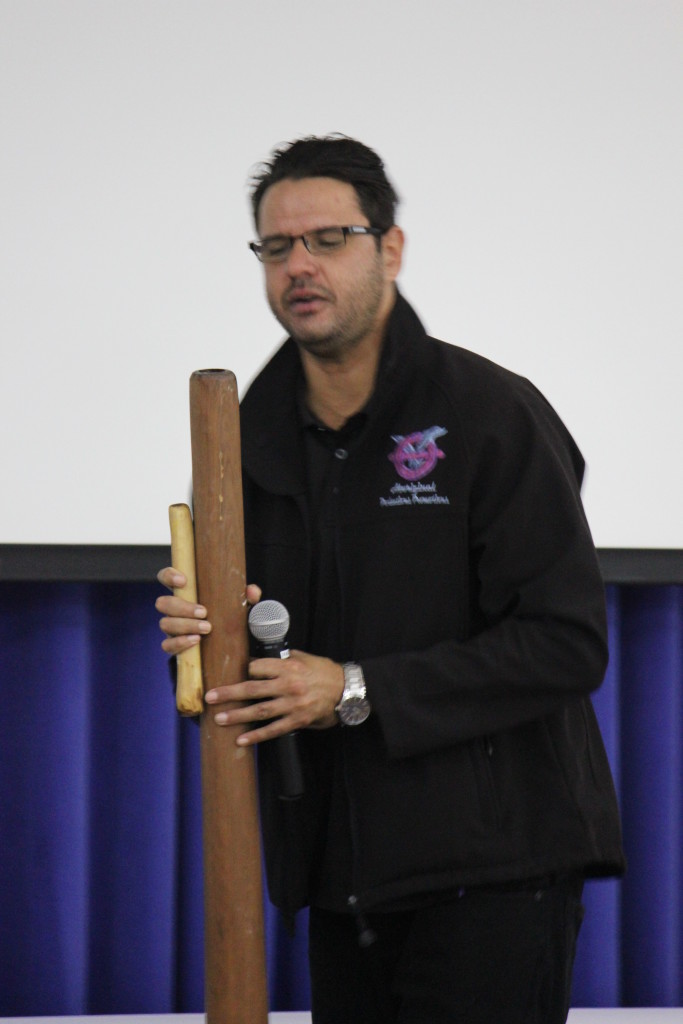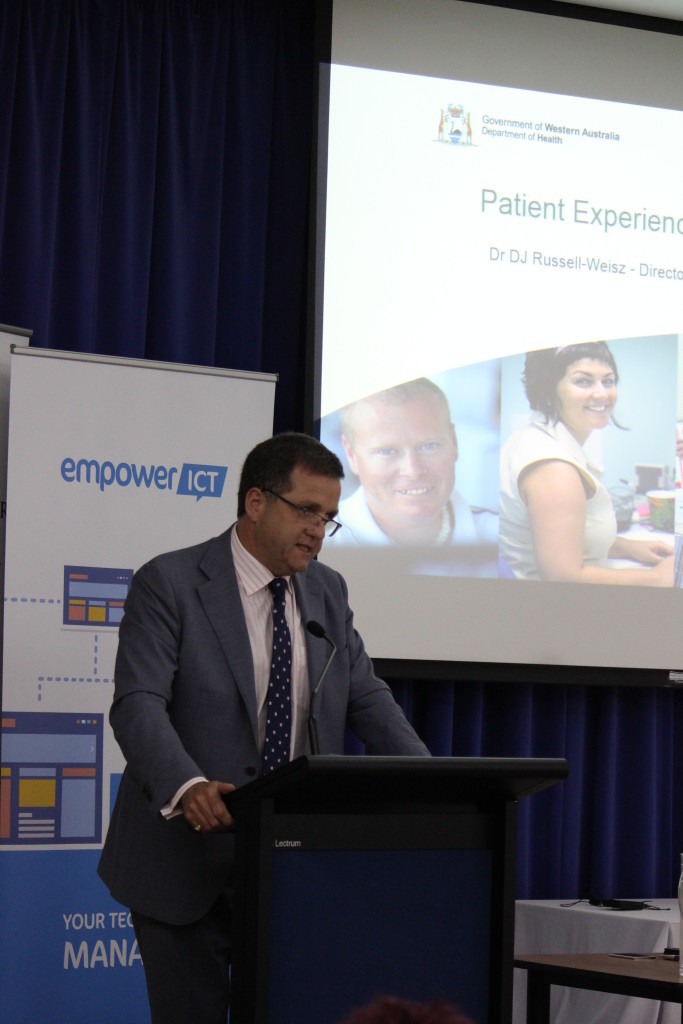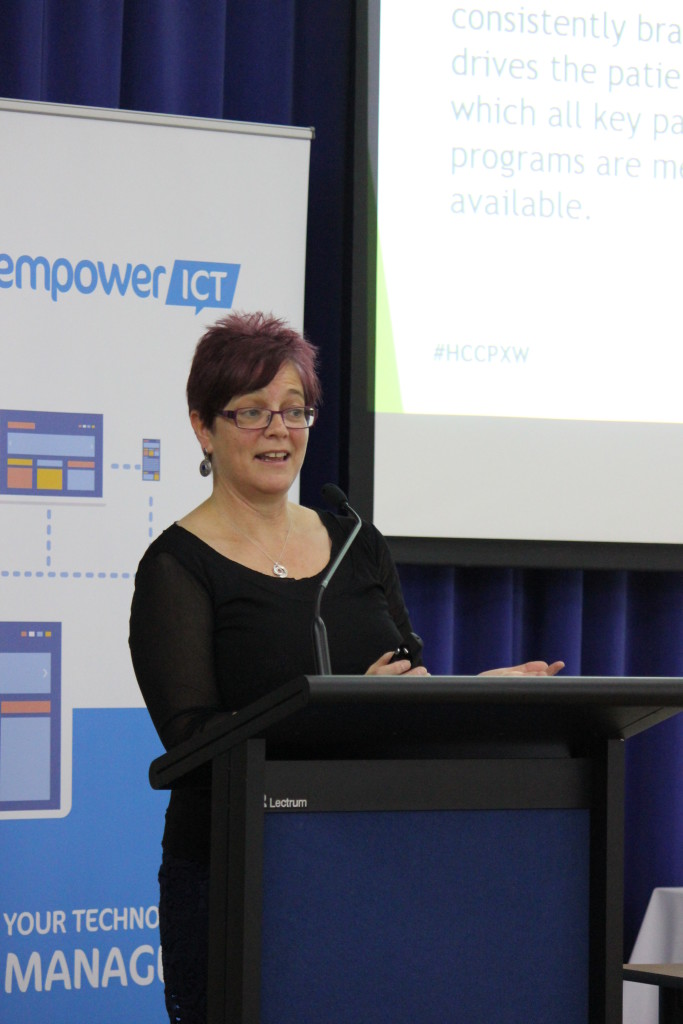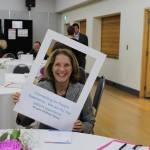On Thursday 28th and Friday 29th April the Health Consumers’ Council hosted our inaugural Patient Experience Week (PXW) with a series of events at The Boulevard Centre in Floreat. We are excited to be finalising our new HCC Podcast of those events we were able to record, and in the meantime, here are some event highlights for you from day one of PXW.
The Welcome and Introduction
 Olman Walley gave a Welcome to Country on both days, providing his own unique and gracious welcome in language and with music. His didgeridoo playing was evocative and on the second day, and veered off into rap. Sense of humour that one!
Olman Walley gave a Welcome to Country on both days, providing his own unique and gracious welcome in language and with music. His didgeridoo playing was evocative and on the second day, and veered off into rap. Sense of humour that one!
Pip Brennan presented on behalf of the HCC and thanked the sponsors Illuminance and Empower ICT who provided essential support for the event. Pip then spoke about how HCC supported consumers individually through advocacy and supported health reform through consumer representative training and sector support. The importance of supporting the health sector in working with Aboriginal as well as Culturally and Linguistically Diverse communities was highlighted. Pip also referenced the December 2015 Clinical Senate Debate on the Patient Experience. She particularly highlighted the four Recommendations from that debate which were endorsed and therefore WA Health has a mandate to ensure they are implemented. The Recommendations are:
- WA Health should introduce a system-wide, consistently branded ‘Patient First’ program that drives the patient experience agenda and under which all key patient experience improvement programs are measured, with results publically available.
- In consultation with consumer and carer peak bodies:
•A statewide definition of a great patient experience is developed that incorporates a value-based, patient-centered approach. WA Health, as system manager, is to ensure this is adopted by the whole of Health.
•Patient experience tools are developed or selected for use that reflect the indicators that matter to patients. - The Senate recommends that a consumer is appointed as a member of State Health Executive Forum (or its equivalent post legislative amendments to create Health Service boards).
- The Senate recommends Chief Executive Officers visibly and actively lead consumer partnership programs and have related Key Performance Indicators (KPIs) in their performance agreement with their boards.
To see the full presentation, click here.
The Director General
The Director General of WA Health formally opened the launch and stated WA Health’s commitment to patient care, patient safety and providing the best patient experience. He highlighted that it is essential to have an organisational culture where staff feel valued and respected, and patients are treated with dignity and respect. In order to achieve that, consumers must be involved in strategic processes that guide the planning, design and evaluation of health services. He referenced the December 2015 Clinical Senate Debate on Patient Experience and highlighted WA Health’s commitment to developing a Compassionate Care initiative. Compassionate Care is about the way in which people relate to each other. This means the way staff treat each other as well as they way they treat patients. His powerpoint can be accessed by clicking here.
 The Director General closed with these statements:
The Director General closed with these statements:
- The patient journey is unique to each person. Every interaction with patients and their families impacts on their experience.
- We must transparently measure the patient experience.
- Lessons learnt – through both positive and negative feedback – can be used to improve health services.
- A system-wide definition of a great patient experience should be developed.
- Consumers must be involved in the planning, design and evaluation of health services.
- It is essential to have an organisational culture where staff feel valued and respected, and patients are treated with dignity and respect.
- This starts with our behaviour and our values.
We were then joined on Skype by Dr Karen Luxford, Director of the NSW’s Clinical Excellence Commission. The gremlins were with us at this point, so the Skype presentation didn’t record. After Patient Experience Week was over, Karen kindly agreed to be interviewed about the Clinical Excellence Commission, their Patient Experience Week events and why the patient experience movement is important. You can listen to that audio by clicking the link below:
The final presentation of the launch was by the irrepressible Jason Wolf, CEO of The Beryl Institute. The Beryl Institute is an international community of health professionals, consumer, carer and community members dedicated to improving patient experience in health care. His presentation was highly motivating, and can be watched by clicking the arrow below. Alternatively you can view his slide presentation here.
The Actors – Two Sides to the Patient Experience
Straight after the launch, Agents Improvocateurs took to the stage to enact a patient journey scenario, inspired by stories HCC hears from consumers who seek our advocacy assistance. In the scenario, a patient had been stung by a bee near her breast and attended the Emergency Department and was then put on a children’s ward where she endured hours of hunger, (children’s portion dinners) pain (failed insertion of a cannula to administer antiobiotics, then a reaction to those antibiotics) and being ignored. She was also confused and frightened by talk of a possible mastectomy in a discussion between two health professionals in a conversation in her hearing which excluded her. The audience offered suggestions for how things could be done differently and the scenario was played through again. It also explored the situation from the provider perspective – each interaction always has at least two people and in this one we explored the fears and humiliation of the nurse who had failed to insert the cannula. Alma Digweed from Bentley Community Advisory Council agreed to join the actors on the stage and was the star of the show.
- Alma Diggins, Star!
- Take Two
- Walking with her drip, begging for help!
Lunchbox Session – Organisational Approaches to Patient Experience
This diverse session included a presentation from Anita Deakin and Carmel Crock, in relation to the Emergency Medicines Events Register (EMER). This interesting and innovative tool is a change management mechanism in that in encourages both clinicians and consumers to report near misses and develop a culture which supports a learning approach to near misses to support a safer patient culture. The Powerpoint presentation is available here, and you can find out more about EMER here.
Next up was James Sherriff, General Manager of St John’s Ambulance and former paramedic. James’ presentation focused on the internal change that St Johns have actively sought within the organisation to ensure front line staff always have the patient at the centre of the care. You can view his Powerpoint here.
The session closed with HCC’s Dr Martin Whitely and Murdoch researcher Dr Norman Stomski describing a key research project they have been collaborating on. HCC provides individual advocacy for mental health consumers who are voluntary. HCC sought to better understand what the advocacy intervention meant for consumers whose patient journey was far from smooth. 60 de-identified individual advocacy cases were written up for research analysis. Martin and Norman’s joint presentation can be viewed here.
Workshop Session – Partnering for Patient Experience
The day concluded with a workshop facilitated by HCC’s Steph Newell. Presenting was Professor Anne Williams on her years of research and development of Patient Experience Tools – known as PEECE and PEECH. Helen Fernando from South Australia presented on the unique and effective Messenger Model that she has developed, and a version of the concept runs at Flinders Medical Centre. The Messenger Model involves the consumer representative providing a conduit for information about health care needs and experiences to reach front-line staff during the episode of care. The feedback about what has gone well or otherwise alerts staff to issues that may be addressed whilst the patient and family are still in the care of the health professional team so that the patient experience can be transformed. Steph Newell explained the key factors of partnership – trust and common purpose. During the workshop session, audience members were encourage to view sections of this video on patient experience and consider the scenarios within the context of the tools discussed – PEECE, PEECH and the Messenger Model.
The Theme, The Crowd
We aligned with the international theme for 2016 Patient Experience – “Connecting for Patient Experience – We are ALL the Patient Experience”














